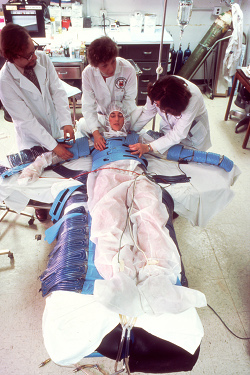 |
linkurl:National Cancer Institute, Mike Mitchell;http://visualsonline.cancer.gov/details.cfm?imageid=1953 |
**__Related stories:__***linkurl:Opinion: Can viruses kill cancer?;http://www.the-scientist.com/news/display/57917/
[19th January 2011] *linkurl:Sweet relief;http://www.the-scientist.com/article/display/57167/
[1st March 2010] *linkurl:Heating up gene activation;http://www.the-scientist.com/news/display/55344/
[19th January 2009]


















